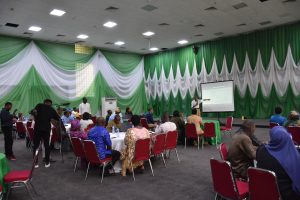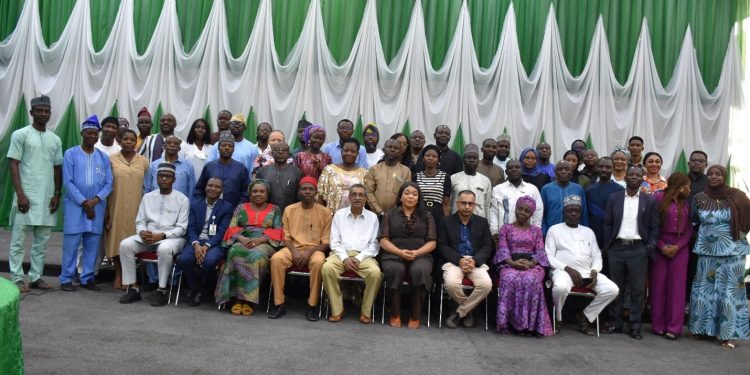Nigeria has commenced the process of preparing its Second Biennial Transparency Report and Fourth National Communication (BTR2/NC4) to the United Nations Framework Convention on Climate Change (UNFCCC), marking another step in the country’s commitment to climate action transparency.
On Tuesday, April 8, 2025, the National Council on Climate Change Secretariat (NCCCS) hosted a technical working group workshop in Abuja, bringing together various Ministries, Departments, and Agencies (MDAs), along with partners to fulfill this UNFCCC obligation.
The Director-General and CEO of NCCCS, who also serves as Special Presidential Envoy on Climate Change, Dr. Nkiruka Maduekwe, was represented at the event by Assistant Director Dr. Chukwuemeka Okebugwu.
In her opening remarks delivered by Dr. Okebugwu highlighted Nigeria’s track record in climate reporting.
“Nigeria has prepared and submitted to the UNFCCC three national communications, two biennial update reports, and the recently submitted first BTR in December 2024,” Dr Maduekwe stated.
She emphasized that the current process aims to commence preparation of the next reporting cycle as required under the enhanced transparency framework of the Paris Agreement.
“This process aims towards building mutual trust and confidence in a transparent manner that involves stakeholder participation and engagement, which over time will establish a formidable institutional arrangement that allows seamless flow of information and data for quality reporting in Nigeria,” she added.
The technical sessions, supported by the Federal Government of Nigeria, Global Environment Facility (GEF), and United Nations Development Programme (UNDP), were designed to coordinate and develop a process for compliance as well as gather data requirements to improve the BTR2/NC4 report.

During the technical session, it was revealed that in 2023, Nigeria achieved a medium rating in the Climate Change Performance Index (CCPI) 2025 ranking results, positioning the country ahead of South Africa. Despite consistency in reporting, experts noted that current policies do not provide adequate support to climate action efforts.
In analyzing the previous BTR1, stakeholders identified several gaps, including challenges in collecting data from relevant institutions, greenhouse gas (GHG) inventory setup issues, difficulties in quantifying Nigeria’s climate resilience regarding access to clean electricity over the past four years, and inadequate climate reportage through reliable sources for wider information dissemination.
The workshop, scheduled to run from April 8 to 15, 2025, will involve engagement with MDAs and representatives from the six geopolitical regions in Nigeria. Sessions will include updating the ADCOM (Adaptation Communication) and addressing other information requirements such as education, training and public awareness, information sharing and dissemination, and research and systematic observation.
These reports are considered crucial for tracking Nigeria’s progress toward its climate goals and supporting more effective data-driven climate action in line with the country’s ratification of the convention in August 2024.

